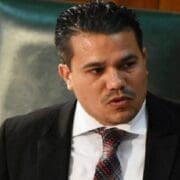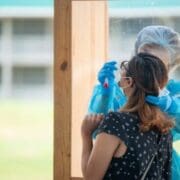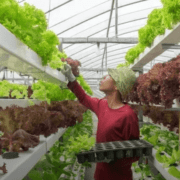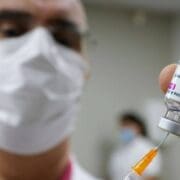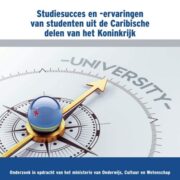Black Immigrant Daily News
PHILIPSBURG — Every year around 1,600 students from the islands of the former Netherlands Antilles travel to the Netherlands to study at institutions for MBO, HBO or WO-diplomas. Those journeys do not always end well: Caribbean students struggle with a complex of issues that result more often than not in disappointing results. The ministries of education from the Netherlands, Aruba, Curacao and St. Maarten commissioned a study into the experiences of these students.
The resulting report, produced by ResearchNed in collaboration with Excellent Government and Management Consultancy from Bonaire and Utrecht-based consultant Andersson Elffers Felix was competed in April. Richelis Williams-Van der Mark, who works for the ministry of Education, Culture, Youth and Sports in St. Maarten was part of the supervisory committee that supported the researchers.
First an explanation of the Dutch alphabet soup that is mentioned in the first line of this article. MBO stands for Middelbaar Beroepsonderwijs, HBO for Hoger Beroepsonderwijs and WO voor Wetenschappelijk Onderwijs, or studies at university level.
The four education ministries asked for the study because Caribbean students perform worse than other students that follow higher education. The results of the study mainly reflect the situation in Curacao and Aruba and the researchers warn that their findings cannot be extrapolated to the other islands. Data available from St. Maarten and the BES-islands was too limited to draw definitive conclusions.
Of the 600 MBO-students that go to the Netherlands every year around 50 percent has its diploma after four years, compared to 65 percent for students with a non-western migration background and 75 percent for other students. The yield is especially low among Caribbean male students. In the first year there is not much difference between male and female students but in the years after that the male students fall further and further behind.
HBO-studies attract each year around 740 Caribbean students, while around 250 go to university. Within the first year 48 percent of HBO-students and 43 percent of WO-students switch to a different study.
Only 23 percent of HBO-students has a diploma after five years, compared to 33 percent for students with a non-western migration background and 51 percent for other students.
On university-level the percentages are lightly better: 43 percent of Caribbean students had a diploma after four years, compared to 58 percent for students with a non-western migration background and 61 percent for other students.
Eight years after the start of their HBO-studies, 40 percent of Caribbean students had a diploma; for university students this percentage is 75 percent.
Most of the students that go to the Netherlands every year come from the larger islands Curacao and Aruba. St. Maarten sends between 50 and 75 MBO-students, 50 to 90 HBO-students and 10 to 20 WO-students.
What are the main concerns for these students? The report found that essential practical matters like housing are not settled well when the students arrive in the Netherlands. Coaching and supervising the students often stops after a year, or at times sooner.
There are no specific facilities for Caribbean students at most schools, because they are registered as being Dutch. For this reason they also do not qualify for facilities for foreign students.
Mostly, the new students suffer from what the report calls overload: a combination of practical, study-related and personal problems.
The report notes that students are poorly prepared for their life as a student in the Netherlands. They have not been taught to be independent, they lack study-skills and they do not master the Dutch language sufficiently.
Students experience a culture shock in their new country. The culture, the climate, the society, the approach to education and all kinds of practical matters are different from what they were used to back home. “For many students the transition is so significant that there is no good approach available to prepare them for it,” the report states, adding that is were better to take more time to prepare students or to look for better fitting study-options at other locations.
Where to begin? The countries must acknowledge that the study-success of Caribbean students is low,” the report states. “Preparation, the choice of study and support are insufficient and focusing on just one aspect will not solve these issues.” There is a need for more resources, and more cooperation, sharing of knowledge and professionalization.
According to the researchers the key to a solution is in the Caribbean. “The bottom line is that if we do not manage to improve the preparation and the supervision effectively, chances of study-success in the Netherlands remain slim. In that case the switch to higher education in the Netherlands ought to be more often discouraged or postponed.”
The report does not provide practical solutions. “The educational institutions in the Netherlands and the Caribbean and the respective governments have to discuss this among each other.”
A significant stumbling block for Caribbean students is language. “Dutch is for less than ten percent the language that is spoken at home,” the report notes. That is obviously not helpful because the language of instruction at most schools in the Netherlands is Dutch.
Another issue is the study students choose to follow. “Parents and teachers have a preference for status-giving studies like law and medicine that are possibly not a good fit for the student,” the report states.
The problems Caribbean students experience are complex: they vary from seemingly mundane issues like homesickness, loneliness and performance anxiety to problems with the Dutch language and practical issues like housing, budgeting, debts, insurances and taxes. Combined with limited study-skills and a limited ability to take care of themselves, this puts study results under severe pressure.
Literature about poor study results mention family background, social economic status, ethnicity, the financial situation of students, social integration and a lack of confidence as possible causes.
Students who were interviewed for the study said that they were poorly prepared for the practical side of living in the Netherlands. They also said that it is too easy to make debts in the Netherlands and that many students don’t handle their finances well. This results in many side jobs that leave little time for study. Due to the temptations of debts, criminality, drugs and shady friends, some students lose focus. Pregnancies are also mentioned as reasons for dropping out of school.
Employees of the University of St. Maarten (USM) were also interviewed for the study. They said that students receive plenty of information but that many of them only take action at the last moment.
USM told the researchers that it wants to establish a program to prepare students better for their life in the Netherlands. The university also noted that it is busy establishing a business program in cooperation with a Dutch graduate school and that it already has a so-called two plus two program in place. Participants in this program study the first two years at home and the next two years at a partner institution in the United States.
Caribbean schools and universities are well aware of the problems students in the Netherlands are facing. They mention language, choice of the wrong study, culture shock, handling money, homesickness, not being independent, not being assertive and problems with housing.
The institutions also mentioned another factor: the culture of shame. Because of this, aspiring students often only hear the success stories. Living with family they have not seen in years does not always end well either; sometimes this results in conflicts whereby the student suddenly finds him or herself on the street.
Government institutions like the St Maartenhouse emphasized to the researchers that they want to present a positive image, saying that many students complete their studies. “Success-stories also deserve attention.”
But governments have also woken up to the reality of poor study results. Aruba and Curacao for instance no longer grant study financing for MBO-studies, because the return on investment is so low. For the same reason, the Hogeschool Rotterdam no longer actively recruits Caribbean students, though motivated students are still welcome there.
Most alarming in this context is that mastering the Dutch language in the Caribbean is diminishing. “Governments are promoting Papiamento or English. Outside of education, Dutch hardly plays a role anymore,” the report states.
###
Related article:Education reform is a work in progress
Download the complete report here>>>
NewsAmericasNow.com


